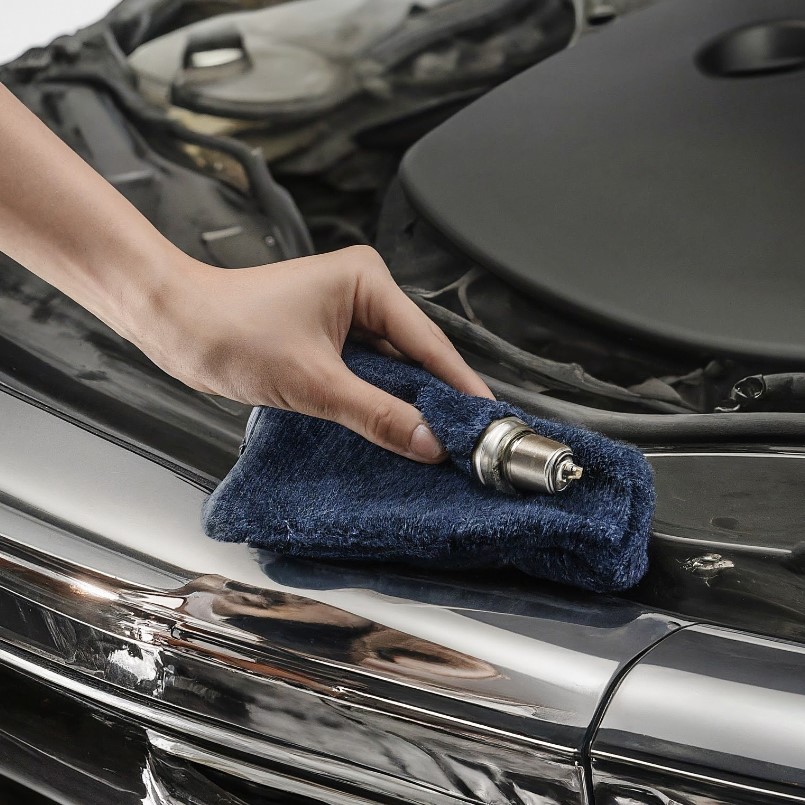Spark Plugs Demystified: A Comprehensive Guide to Understanding, Selecting, and Maintaining Automotive Spark Plugs

Introduction:
Spark plugs are the unsung heroes of internal combustion engines, igniting the fuel-air mixture to power our vehicles. Despite their small size, spark plugs play a pivotal role in engine performance and efficiency. In this detailed guide, we'll delve deep into the realm of automotive spark plugs, unraveling their characteristics, types, and the critical factors to consider for optimal performance and longevity.
Understanding Spark Plugs:
At the heart of every spark plug lies a simple yet ingenious mechanism. When high-voltage electricity arcs across the spark plug's electrodes, it ignites the compressed air-fuel mixture within the engine cylinder, initiating the combustion process that drives the engine.
Characteristics of Spark Plugs:
Heat Range:
The heat range of a spark plug refers to its ability to dissipate heat from the combustion chamber. Spark plugs with a higher heat range can handle more heat without overheating, making them suitable for high-performance engines or those operating under heavy loads.
Conversely, spark plugs with a lower heat range dissipate less heat, making them ideal for engines running at lower temperatures or under light loads.
Electrode Material:
The electrode material greatly influences spark plug performance and longevity. Common electrode materials include copper, platinum, and iridium.
Copper spark plugs offer excellent thermal conductivity but have a shorter lifespan compared to platinum or iridium plugs.
Platinum and iridium spark plugs boast superior durability and longevity due to their resistance to electrode erosion and oxidation, making them ideal for modern engines with high-energy ignition systems.
Gap Size:
The gap size between the spark plug's electrodes significantly affects its ability to produce a strong and consistent spark. This gap size is crucial for efficient combustion and engine performance.
A wider gap allows for a larger spark, promoting more efficient combustion and improved engine performance, especially in high-performance applications.
However, it's essential to strike a balance, as a gap that is too wide may cause misfires or ignition issues, while a gap that is too narrow can lead to weak sparks and poor engine performance.
Types of Spark Plugs:
Copper Core Spark Plugs:
Traditional spark plugs featuring a copper core electrode. While they offer excellent thermal conductivity, they have a shorter lifespan compared to other types.
Platinum Spark Plugs:
Utilize a platinum electrode, offering enhanced durability and longevity compared to copper core plugs. They are ideal for modern engines equipped with electronic ignition systems.
Iridium Spark Plugs:
Incorporate an iridium electrode, renowned for its exceptional durability and longevity. Iridium spark plugs provide the best performance and longevity among spark plug types, making them ideal for high-performance and high-mileage applications.
Optimizing Spark Plug Performance:
To ensure optimal engine performance and longevity, consider the following tips for selecting and maintaining spark plugs:
Choose spark plugs with the correct heat range and electrode material for your engine's requirements and operating conditions.
Regularly inspect spark plugs for signs of wear, fouling, or damage, and replace them as needed to prevent performance degradation and potential engine damage.
Ensure proper installation and gap adjustment according to manufacturer specifications to maintain consistent ignition performance.
Follow the recommended maintenance schedule outlined in your vehicle's owner's manual to ensure timely spark plug replacements and optimal engine performance.
Conclusion:
Spark plugs are the unsung heroes of internal combustion engines, igniting the fuel-air mixture to propel our vehicles forward. By understanding the characteristics, types, and importance of spark plugs, drivers can make informed decisions when selecting and maintaining these critical engine components. Whether you're a seasoned mechanic or a novice enthusiast, ensuring your spark plugs are in top condition is essential for maintaining engine performance, fuel efficiency, and overall reliability.

